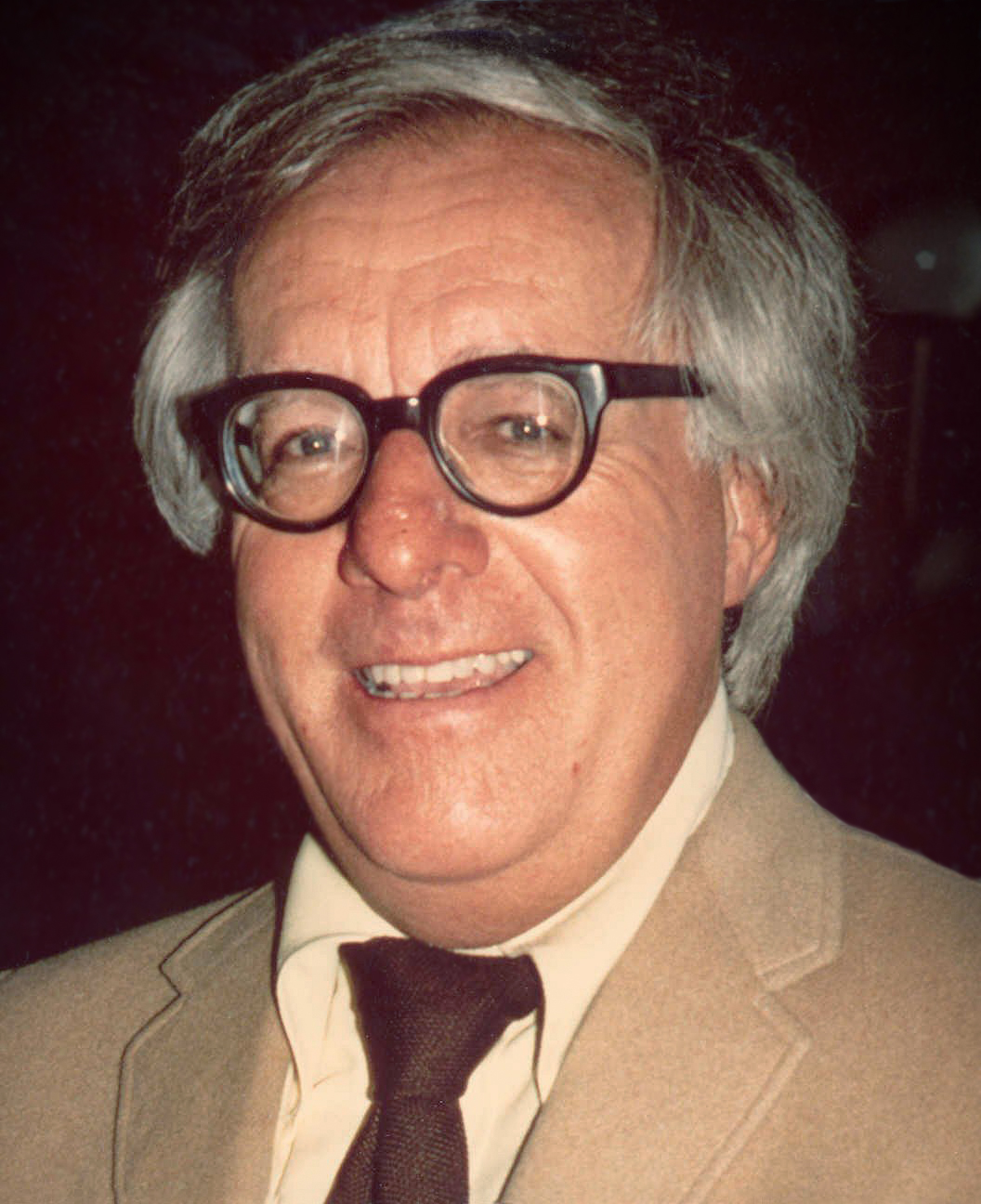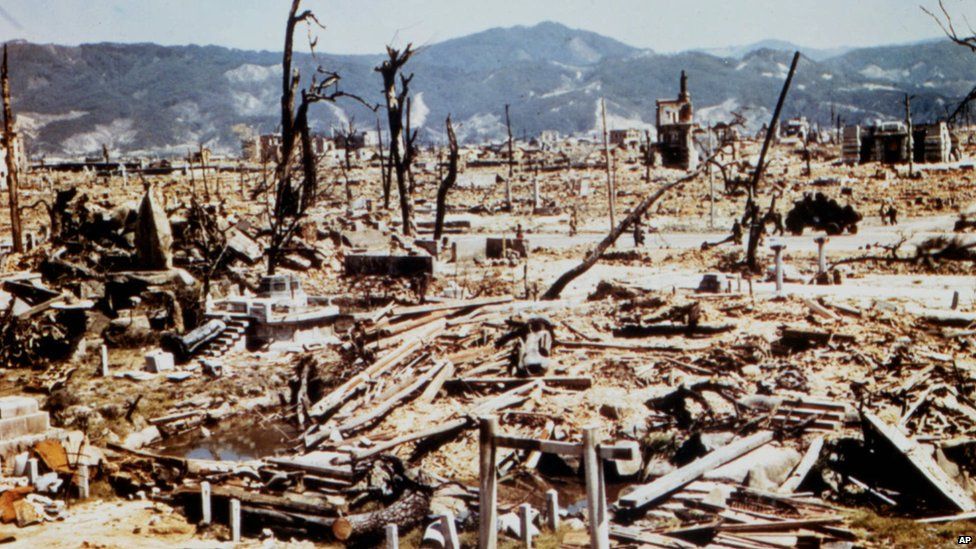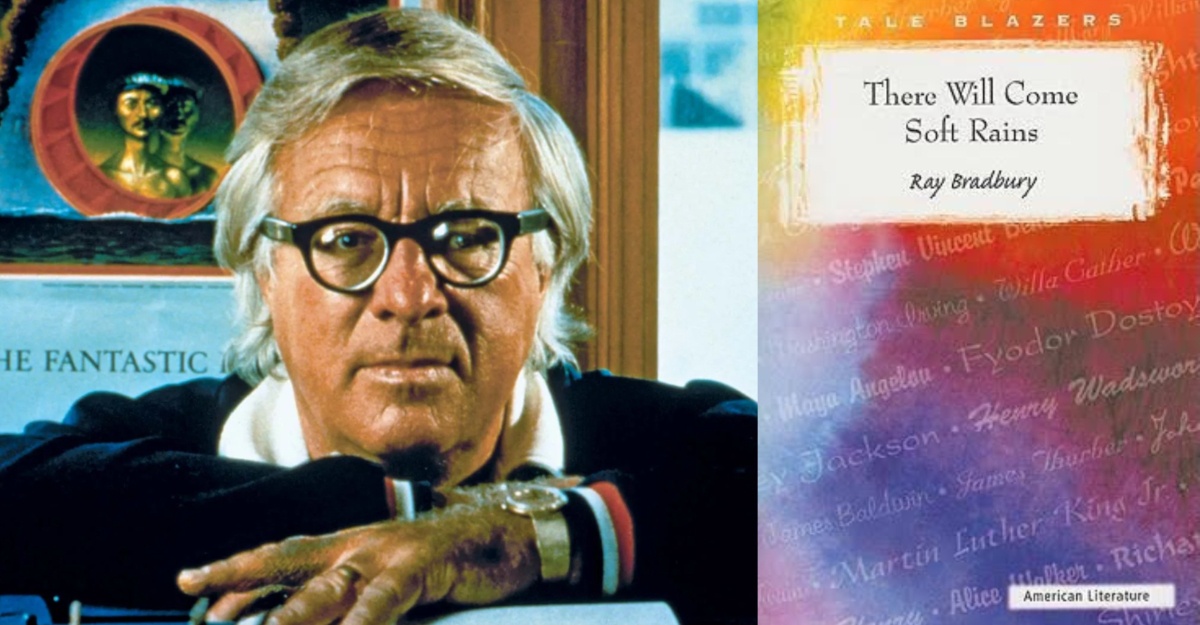In most literary works, the protagonist and antagonist are mainly humans. But have you ever come across a story that has nature as the antagonist?
Ray Bradbury’s “August 2026: There Will Come Soft Rains (1950)” is one of many short stories discussing nature as the ‘bad guy’, not humans.
Who is Ray Bradbury?

For those who don’t know, Ray Bradbury is an American author and screenwriter. He was one of the most renowned 20th-century American writers. Some of the genres of his stories are fantasy, science fiction, horror, mystery and realistic fiction.
His breakthrough work was Fahrenheit 451 (1953), his short story collections The Martian Chronicles (1950) and The Illustrated Man (1951).
In this post, I’ll be sharing one of Bradbury’s short stories from his book, The Martian Chronicles (1950), “August 2026: There Will Come Soft Rains”.
It is considered a post-modern work because it caters for the themes of irony, visuality and destruction (or generally, a darker theme that everyone who lives post-World War II could relate to).
The summary
The story takes place in a house in Allendale, California. The time setting is on 4 August 2026, which is roughly in the next four years from now. The house is empty, although there are signs of life in it.
Weirdly, there are no people in the house. But the voice commands, the reminders, and the sound of water boiling can be heard, indicating that everything still runs smoothly despite the mysterious disappearance of humans.
The story begins at seven o’clock and ends at ten o’clock. However, until the end of the story, no one returns home.
Fire erupts when the clock strikes ten, and the house burns into flame.
There are no signs of humans still. Only animals. However, the animals are mutated. For example, blue lions and purple giraffes are running around deserted places, looking for shelter.
The story ends with a new reminder from the intercom, “Today is August 5, 2026, today is August 5, 2026, today is…” (Bradbury 4).
Nature vs Human
As I’ve learned in the Literature and the Environment class, this story encapsulates the horror of nature as the antagonist as they bring destruction not only to humans but also to the world.
Interestingly, when we discussed this story in class, I was surprised by the time setting. So far, I’ve never read a story that was written long, long years ago that predicted the upcoming events in our current time.
Why August 2026? Is there a conspiracy?

It’s a bit odd. You may ask, why did Bradburry write this story with a time setting of 2026 when it was only 1950 when he first published this? Well, my Dr and I hypothesise that Bradbury hinted at the impending destruction new and advanced technologies bring today.
There are many cases of nuclear bombings, sudden attacks and global destruction happening these days. What is the reason behind it? Advanced technology.
But don’t get me wrong: technology has helped humans in many ways. It makes our life easier. However, the misuse of technology leads to more harm than good. And when these powers fall into the wrong hands, this is what happens to the world and us; catastrophe.
Nature’s Warning to Illegal Practitioners of Environmental Disobeyers
Bradbury highlighted the effects of technology misuse in this short story. What nature can do to us parallel what we did to them: improper radioactive waste management, illegal logging and land discovery contribute to environmental issues like global warming, the greenhouse effect and many more.

Although he passed away in June 2012, Bradbury’s literary work is still studied today. Many of his works are relevant to be read now, especially after COVID-19. Many of his works reflect the feeling of hopelessness, fear and anxiety that many humans experience post-pandemic.
Therefore, I could safely say that Ray Bradbury was ahead of his time. Bradbury was one of the writers that transcended time and space with his writing style and the overall idea of his work. And this story illustrates that if we harm nature, they can definitely do the same to us.
You can read this at GoodReads if you’re interested to know more about it. Happy reading!








